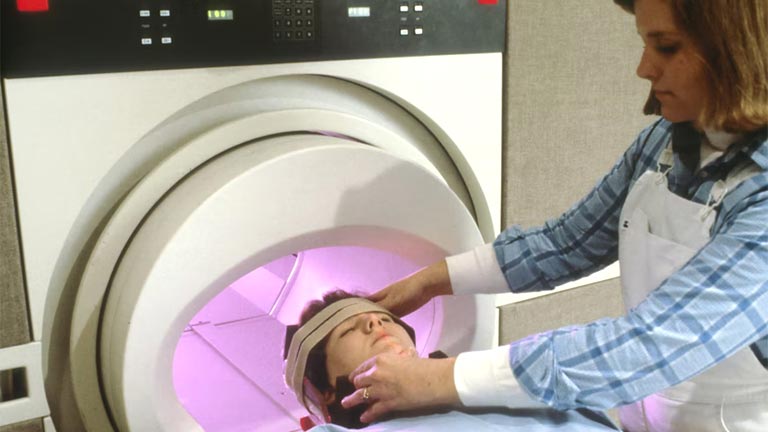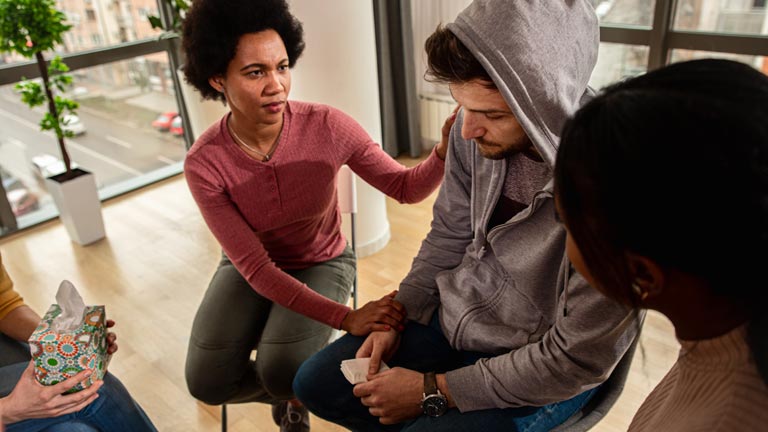
As we grow older, we experience more sources of stress. Experiencing retirement, bereavement, and loneliness are some of these stressful situations. Our physical health also declines when we reach a certain age in life, and it can be stressful for most of us.
Stress is a normal part of our lives. But, if we don’t do something to ease stress, it can lead to mental health problems when we’re older. In 2017, the WHO reported that over 15% of older adults suffer from a mental health disorder. And with COVID-19, the risk of anxiety and depression among older adults increased.
Adapting to these changes is challenging, but it is possible. That’s why it is important to know more about mental health and aging. This way, you can help a close relative or friend who is suffering from mental health problems.
Early Signs of Mental Illness Among Older Adults
Early detection and treatment of mental illnesses among the elderly are important. These illnesses can do more than just cause mental distress. They can also make it more difficult to deal with other health issues, especially chronic ones.
Knowing the early warning signs of mental illness will help you take care of older adults. When you notice these signs in your loved ones, make sure you go to the nearest medical office. Have a doctor check on them to see if they are suffering from mental illness.
These are just some of the most common indicators of mental illness among the elderly. Not everyone experiences these symptoms the same way. Your primary care doctor can tell you more if your loved ones have mental health issues.
Searching for “primary care doctors near me” on Google will make the process easier. Some websites give you a list of specialized doctors in your area. And it’s helpful because most of these websites also include where to find and how to contact these doctors.
1. Problems With Memory
Most people think memory problems are a natural aspect of aging. This is not true, and it often causes mental diseases to go unnoticed. And when you don’t recognize them early on, these illnesses can become severe.
Memory issues in elderly people can be a sign of mental illnesses like dementia. Misplacing items, constantly asking for the same information, or missing important dates are all signs of memory loss.
2. Changes in Personal Care Routines
A person with mental health concerns is more likely to abandon their personal care habits. You may notice some changes in the appearance of some older loved ones. These often show that they can’t maintain their previous personal care habits.
Some of these changes can include, but are not limited to:
- Not showering daily
- Applying the wrong make-up
- Forgetting to brush their hair
- Forgetting to brush their teeth
It’s important to know that these changes vary from person to person. The sudden change in their personal care routine may be due to different factors. Whether it’s because of psychological or physical changes, it still helps to keep an eye on them.
Hygiene is an important part of our health, especially for older adults. When it suffers, our health also suffers. Make sure you know of a medical center near you and book an appointment with a primary care doctor. This way, you can prevent the progression of a mental health illness.
3. Withdrawing From Social Situations
Mentally ill people usually retreat from social situations. If your loved one is losing interest in hobbies they used to like, it’s possible they’re dealing with a mental health problem.
These problems make it difficult for them to do activities they have engaged in before. They may abandon weekly card games with their pals, and it’s usually because they forget how to play them.
4. Changes in Mood
Elders with mental disorders like Alzheimer’s may experience a shift in their mood. They can go from being carefree to being nervous or from being cheery to being melancholy.
Mood swings are normal. But if they remain for more than a few weeks, there might be a more serious explanation for it. Be sure to get the help of a specialist or your primary care doctor when this happens.
Common Mental Health Problems in Older Adults
1. Depression
Depression among older adults is more common than you think. According to the CDC, about 1% to 5% of older people suffer from major depression. This rate rises to 13.5% for the elderly who need healthcare and 11.5% for those who are hospitalized.
This illness results in a long-term shift in mood or a lack of enthusiasm for activities they once enjoyed. Elderly people with depression feel sad and hopeless for long periods of time, have fatigue, and have sleep problems. They also encounter physical aches and pains for no obvious reason and have difficulty concentrating.
2. Anxiety
Anxiety is a broad term that includes a lot of mental illnesses. Generalized anxiety is when a person may feel continuous and excessive concern. Some elderly people experience extreme feelings of worry in social situations. These can be symptoms of social anxiety disorder. It can also take the form of intrusive, repetitive thoughts and acts, which is OCD.
Anxiety often causes physical symptoms such as a racing heart, dizziness, and muscular tightness. These symptoms are more common than emotional symptoms in the elderly. That’s why if the elderly have these without a known cause, it implies anxiety.
3. Bipolar Disorder
Late-onset bipolar disorder resembles dementia, and it can be difficult to diagnose. Their similarities lie in their symptoms, which include:
- Agitation
- Depressed mood
- Restlessness
- Anxiety
While that is the case, you will notice some differences. Patients with bipolar disorder experience a delayed onset of mania and a slower transition from mania to depression. Some may have several fast mood shifts during the day.
But, this symptom is more prevalent in those with dementia. This is “sundown syndrome” and it often lasts from afternoon to night time.
4. Dementia
Dementia, like anxiety, is a broad term for conditions that affect our brains. The different types of dementia differ depending on which part of the brain is affected.
Generally, this mental health illness occurs when someone’s cognitive functioning has deteriorated. That’s why it is more common among the elderly. Difficulties in remembering, thinking, and reasoning are a part of aging. But, when these symptoms interfere with their everyday lives, that’s when it is considered dementia.
There is no cure for dementia. But, some therapies and medications can help the elderly live with it more comfortably.
Seek Professional Help
Most mental illnesses among the elderly go undiagnosed. They often don’t feel the need for mental health care and seldom bring it up with their primary care doctor.
That’s why other people around them need to know more about their conditions. Knowing the difference between forgetfulness and dementia can be the key to preventing it from progressing.
And don’t forget to seek professional help. Your primary care doctor can help you identify if a loved one is suffering from these disorders. They can, then, refer them to a psychologist for early diagnosis and treatment. And make sure you have a list of primary care offices near you. Should there be an emergency, you can get professional help in no time.
Remember that early detection is important in the treatment of mental illnesses among older adults.




